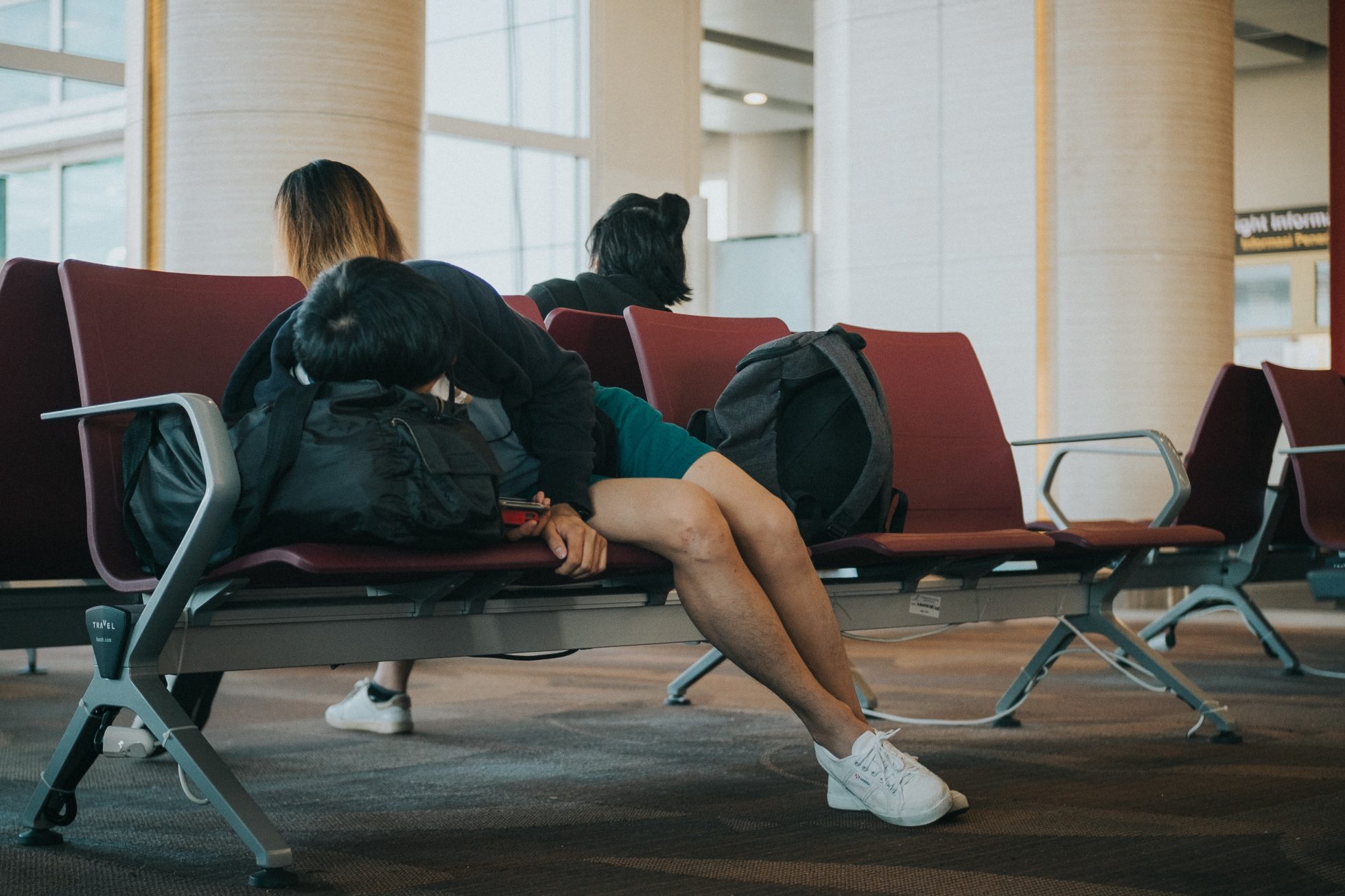
publication date: June 21, 2023
Jet lag - what is, symptoms and tips for relief
After a long trip, do you feel overwhelmed, tired and irritable, and your head and stomach hurt like never before? If so, you've probably been hit by the effect of a phenomenon familiar to all globetrotters called jet lag. While the symptoms may sound frightening, there are ways to overcome it. To find out what jet lag is, what the symptoms are and how to deal with it - keep reading.
What is jet lag? How to deal with it?
1. Jet lag - what is it?
Jet lag - what exactly is this phenomenon? This effect affects travelers who cross multiple time zones quickly, disrupting their internal clock, called circadian rhythms.
In a nutshell: jet lag occurs when you are on the go and remain awake at inappropriate times. Usually your body knows exactly when it is time to sleep or eat. When you cross time zones, your internal clock goes out of sync and there is a confusion effect.
Jet lag can affect you if you cross a minimum of three time zones.

2. Jet lag vs. flying to the west and east
The intensity and duration of jet lag depends on the direction of travel - whether you are flying west (for example, to the US or Canada) or east (for example, to Japan or South Korea). Although jet lag symptoms usually occur in both cases, their severity and impact on the body are not the same.
The effects of jet lag are more severe when you travel from west to east, as your day becomes shorter and keeping awake until standard bedtime is more challenging. In this case, your body has less time to recover.
If you're traveling west, do your habits (such as eating or sleeping) the other way around, progressively moving everything to later than usual.
A trip to the west, on the other hand, will be easier on the body because the internal clock has to adjust to the longer day. This type of adaptation is only a requirement to stay alert for a few extra hours, which is more achievable.
Remember that crossing multiple time zones (regardless of the direction of travel) increases the severity of jet lag symptoms. It's worth preparing for them and trying to alleviate the symptoms.
3. What are the most common jet lag symptoms?
The most common symptom of jet lag is sleep disturbance, meaning you may have difficulty falling asleep at night, waking up in the morning and/or staying awake in the middle of the day. Other symptoms of jet lag include:
- feeling of irritation,
- extreme fatigue,
- indigestion and stomach pains,
- mood changes,
- general unwellness,
- headaches,
- coordination problems,
- lack of focus or concentration.
Why does jet lag cause these symptoms to occur? Mainly because of the sudden time zone change and the associated desynchronization of your internal clock. Your body is optimized to function in specific phases of sleep and wakefulness, which are synchronized with natural cycles of light and darkness.
External factors, among others, such as lighting (both artificial and natural) affect your body's processes. For example, when light enters the eye, cells send a message to the brain that they can stop producing melatonin (a hormone that helps you fall asleep). Hence, jet lag symptoms are linked to sleep disturbances.
Some people may be less exposed to jet lag than others, such as passengers who travel frequently will be less affected because their bodies have adapted to its effects.

4. How long does jet lag last?
The duration of jet lag depends on several factors. These include the distance of the trip, the individual body's rhythm and overall health. Many people who experience jet lag feel better a few days after arriving at their destination. For some people, it can take up to a week to recover fully. Watch your body and remember not to overtire yourself.
Jet lag is a very individual issue, which means that sudden time zone change syndrome may not even affect you.

5. How to overcome jet lag? How to avoid jet lag?
Is it possible to prepare for jet lag and soften its effects? Of course! Fortunately, there are many ways to effectively minimize the unpleasant symptoms of jet lag. First of all, you should properly prepare for it.
How to overcome jet lag - 7 tips
- Adjust your schedule before you leave
In addition to packing your suitcases and preparing the necessary documents (e.g., visas, which you can also purchase here (opens in a new tab)), try to adjust your internal rhythm - change your meal and sleep times to match the times at your destination. Start with 30-minute shifts and move closer to the local time day by day.
- Switch your watch after boarding the plane
- Don't take a nap after arrival
- Drink lots of water
Drink plenty of water before, during and after your flight to keep your body hydrated. You don't have to worry about lack of access to it. You'll find free clean water dispensers at Warsaw Chopin Airport, as well as at other airports around the world. Go through the security check with an empty bottle, and then refill your bottle! Water is also offered throughout the flight.
- Avoid alcohol and coffee
Although alcohol can help you fall asleep, and coffee or an energy drink will give you more energy, it's better to avoid drinking these types of liquids. Their properties increase dehydration.
- Go outside and catch the sun
If you feel sleepiness, and there are several hours left until bedtime at your destination - go outside! The influence of sunlight effectively reduces the production of melatonin, which is responsible for sleep.
- Eat light meals
Jet lag can cause stomach problems and indigestion, so choose light meals when traveling. Our menu offers a wide range of specialty meals tailored for different diets - order your favorite on board!

6. Do you need to consult a doctor about your jet lag symptoms?
Jet lag is a temporary phenomenon and in most cases does not require consultation with a doctor. However, if you travel frequently and experience sudden changes in time zones, make an appointment with a specialist who can prescribe appropriate supplements.
Want to share your memories? Post pics from your trip on your Instagram and tag us in the description. Add #flylotblog and #flylot and let us find you!
Read our travel related tips
How to pack for 3 days? A practical guide for weekend travelers

Why is it worth buying travel insurance?

Travel medicine — how to prepare for a trip abroad?

What should you know about the MEDIF form?

How to earn miles in the Miles & More program and how to redeem them on lot.com?

Airline electronic ticket — what does it look like and how to read the information on it?
